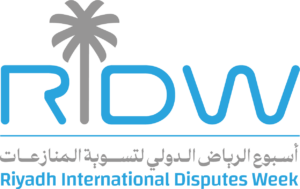The imminent arrival of Riyadh International Disputes Week (“RIDW“) is a natural opportunity to reflect on the Gulf/Middle East disputes market and the factors that will impact on the success of the Saudi Center for Commercial Arbitration (“SCCA“) which will undoubtedly be at the heart of RIDW.
As with all things in the Gulf/Middle East region, there has been a huge amount of change in the last 20 years, in the world of dispute resolution, and, if anything, the pace of change has accelerated. That has included the opening of new regional arbitration centres, the relaunching of other centres and a proliferation of new rules and best practice, alongside the growth in the legal sector.
Any observer of the region cannot fail to be impressed by the speed of development, and the way in which the regional arbitration centres have adopted best practice, in many ways.
However, in the world of dispute resolution and international arbitration in particular, the service that is being provided, the parties that these are being provided to, and the timescales on which dispute resolution operates are essential.
Breaking that down, a contract will be agreed between two commercial parties at a particular time. That contract will include a dispute resolution clause.
The parties will want to know that the dispute resolution clause will be effective when it is needed, and, broadly speaking, how the dispute resolution process, will operate. That is the basic principle of contract law.
This is particularly important in the world of international arbitration, where some of the most significant contracts that may be the subject of arbitration, will run for a number of years, and disputes may not be resolved until sometime after the contract has come to an end. Indeed, the Gulf/Middle East region is proudly the home of some of the world’s most ambitious projects, and many of those projects will effectively use long term contracts that may run for multiple years.
So when a party agrees to a particular forum to resolve its disputes, it needs to have a reasonable amount of certainty which should include the following, as a minimum:
- That the centre will be in existence, when it is needed.
- That the rules in place at the time the dispute is resolved will be substantially the same as they were at the time the contract was entered.
- That its cases will be administered in a reliable, consistent and efficient manner.
In conclusion, having launched or relaunched a number of centres, and in most cases brought the rules in line with international best practice, this author would suggest that the region perhaps needs a period of consolidation in relation to the arbitration process, with the SCCA and other regional centres having their primary focus on building up strength in depth in terms of the administration of cases and building up a solid corpus of cases that are being arbitrated in these centres. It is those centres which build a solid and reliable reputation, that will achieve success in the medium term.
We look forward to attending the SCCA24 Conference!
________________________
To make sure you do not miss out on regular updates from the Kluwer Arbitration Blog, please subscribe here. To submit a proposal for a blog post, please consult our Editorial Guidelines.



